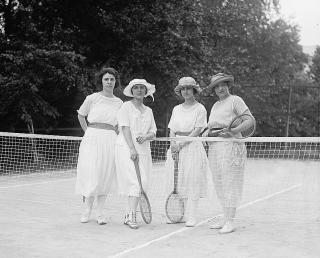
If you're looking for some great British female athletes from the 1980s, look no further. Here you'll find articles about Hannah Mills, Olympic gold medalist, BMX champion Laura Kenny and Great Britain's first transgender Olympic athlete. You'll also find information on women's tennis, judo, and swimming.
Beth Shriever, BMX gold medalist
Beth Shriever, a British BMX gold-medalist is Beth Shriever. The BMX rider won the gold medal in Tokyo's women's race. It took her a long time to achieve this success. She began on a borrowed bicycle and a secondhand bike. Eventually, she became a household name in Britain.
Shriever won all three her races and nearly led from the beginning in the semis. In the final, she held off a late charge from Colombia's Mariana Pajon to take gold. Whyte was also awarded a silver in the BMX-racing event. Both Shriever, and Whyte come from Britain.
Laura Kenny is a BMX champ
Laura Kenny, a former BMX champion, is back on the track for 2020 UCI World Track Championships. After two serious crashes at the velodrome, she had considered quitting competition. Her first crash occurred during a tempo race at the Milton World Cup in February. In her fall, she fractured her shoulder and arm but refused to retire. The next month, she crashed again during a scratch race, breaking her arm. The injury went undiagnosed until after she returned home.
Kenny has five Olympic golds and two silver medals. In the team pursuit, she also won silver. This makes her one the most decorated Olympians of British history. She was also the first British woman ever to win a medal at three consecutive games.
Olympic gold medalists Hannah Mills (left) and Charlotte Worthington (right)
The twin Olympic gold medalists hail from Cardiff, Wales and are both keen environmentalists. Mills, who is a member Welsh national sailing crew, rose through the ranks of Great Britain to win a string o junior titles in both solo and crewed events. She attended Howell's School in Llandaff where she won the Optimist Girls' Global Championship. She was also first female to win the British national title. Mills, despite her success on the water has decided to defer her third year of mechanical engineering in order to pursue this opportunity.
Mills and Worthington were still recovering from injuries sustained during the London Olympics. After a short rest, the pair decided that they would give the Olympic cycle another shot. Clark recovered from pneumonia and the team lost their coach Joe Glanfield, but the pair were back in the water and claiming the gold medal. Although the two were congratulated, it wasn't always easy. Mills suffered a concussion in January and stomach problems in March which required her to undergo a gastroscopy.
Great Britain's first transgender runner
Transgender people are becoming more well-known in the UK and there are many events to improve their lives. The 1980s marked several significant events for the trans community. Philippa York, an accomplished cyclist, became transgender. The International Transgender Conference at the University of East Anglia was held in 2008. It has become a biennial event. Stephen Whittle published Engendered Punishments, which was a book that Lewis Turner and Stephen Whittle published. It was designed to include trans people within the new Commission on Equalities. Kele Telesford was also murdered in 1980. She was found dead at her home. Laverne cox, a transgender woman who appeared on British Vogue's cover, was another notable event.
British women have always criticized transgender athletes. The inclusion of transgender athletes in women's sport has prompted a wide-ranging debate over their unfair physical advantages. British female Olympians are also critical of the inclusion. Despite this controversy and criticisms transgender women continue to be active in women's sport.